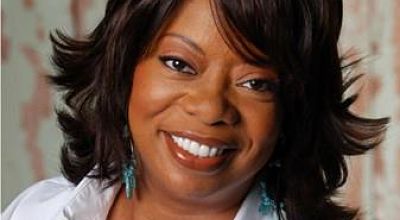Music Industry’s ‘Demonic’ Edge Creeping into Gospel?
Along with gold records and No. 1 songs, the secular music world can be synonymous with addiction.
R&B superstar Chaka Khan even called the industry “demonic” following the tragic death of her friend and fellow music icon, Whitney Houston.
“This machine around us, this so-called music industry is such a demonic thing,” Khan told CNN’s Piers Morgan shortly after Houston’s death. “It sacrifices people’s lives.”
Gospel music legend Helen Baylor once sang backup for Chaka Khan. Baylor recently spoke with CBN News for an extended interview in Las Vegas at Xartis Studios, a new facility that shows young people how to use music to cope with mental and emotional challenges.
“When [Chaka] said that, I sat there in my bed and just said, somebody gets it,” Baylor said. “Somebody else gets it … there is a demonic component in the industry, fueled by greed, money.”
“People have no regard for anybody else, except for the bottom line, the money,” she said.
Baylor’s Broken Road
Baylor took on the demons of the secular music world and drug addiction in the early days of her career as a secular music performer. She shared the intimate details of her troubles, trials, and triumphs in her memoir, No Greater Love: The Helen Baylor Story.
Baylor is also at work with producers to turn that memoir into a feature film.
“My life has been something from the beginning,” Baylor said. “I don’t complain. I am not angry.”
Baylor was molested as a child, recorded her first single at age 13, became pregnant at 16, and was singing with Ike & Tina Turner on the Las Vegas strip by age 17.
At 17, her voice also landed her a job traveling the country in the musical “Hair.” She partied hard and then turned to pills to sleep, stay awake and do her job.
She wrote about that time in her life, saying, “Finally, I made friends with cocaine. Everyone who needed drugs, even the 30-year-old players in the show learned to come to me at 17 and 18. They knew I always had a stash of marijuana or hash or something.
“For the next 12 years, I was addicted,” Baylor recalled to CBN News. “Then I got delivered through the prayers of my grandmother.”
That deliverance testimony launched her now-legendary career as a gospel artist. For more than 30 years, she has traveled the world sharing her story of survival.
Houston’s Tragic Example
Privately, she has also prayed for artists still struggling with addiction, like Whitney Houston. Houston lost her longtime battle with drug addiction in February. The Los Angeles Coroner’s Office ruled Houston died of an accidental drowning caused by heart disease and chronic cocaine use.
“There are so many people hurting and they have got secrets,” Baylor said.
“Then when something like this happens to someone that we love so much, a woman that we never met, but we love her, a fallen comrade—when something like this happens, we can’t look the other way,” she said. “We have got to get it together.”
“We were praying for her. We were rooting for her. I remember once seeing her mom. We did a concert together and I asked her, ‘How is Whitney?’” Baylor recalled.
“And she didn’t make a big deal out of it or anything. But like a mother, she looked at me, mother to mother, and said, ‘Pray for my daughter.’
“And I just could feel Cissy [Houston] all over, I could feel her,” she said.
Whitney Houston is among a growing list of iconic artists whose deaths have ties to drugs. Amy Winehouse, Michael Jackson, Elvis Presley, and Jimi Hendrix still make headlines.
Singer Nedra Talley Ross knew Jimi Hendrix before the drugs. He played guitar for her groundbreaking 1960s group, The Ronettes.
She credits God and family for being able to avoid the addictive pitfalls of the music industry.
“We didn’t have people wooing us because we were family-oriented. We partied with our family at my grandmothers,” Ross told CBN News. “So nobody did anything and it was a time when the fear of my mother was greater than the temptation that anybody could talk me into because she would kill me.
“When you have the extreme success, it can be a downfall because you get people that are with you that don’t have your best,” she said. “They have a job.
“You can get managers, you can get agents that say, ‘Keep going, keep going. Here, take this, this will keep you going,’” Ross explained. “You get those around you that will say that ‘If I get you on this, then that is my meal ticket.’”
Gospel Artists Beware
Those forces fuel the demonic elements to the secular music world. But after many years in the Christian music arena, Baylor cautions against the pressures and demands that are turning gospel artists into celebrities.
The growing audiences are also focusing more on the music than ministry.
“The music business in the church plays right into it,” Baylor said. “The artists, they come and they put them on a pedestal and pay them large sums of money. And then when they don’t have an album out, they quit calling.”
“And that has got to do something to the artist,” she said. “It’s got to be a demonic component there.”
While illegal drugs may be a less likely problem in the gospel music world, Baylor is breaking her silence on her latest trial in hopes of helping others.
Her husband of 30 years walked out two years ago. She found herself alone and addicted again. This time, it was with a doctor’s prescription.
“You know how the enemy is, he will come back on you with the same challenge you had before you got saved,” Baylor confessed. “And that is what happened in my case.
“I wanted the marriage to work, but when somebody doesn’t want you maybe you ought to see that they don’t want you. So, I finally got that together,” she said.
“But in the interim, I ended up having to take medication to sleep, medication for anxiety, medication for the pancreatitis, the back pain that actually turned into the addiction,” she continued.
“I thought my career was over and I thought, ‘Wow, God can’t use me.’ But a year ago, I got rid of Ambien and not too long ago, stopped with the pain killers,” she said.
“I had signed up to go to rehab. But God said, ‘I am the same God that delivered you 31 years ago,’” Baylor said. “‘I can do it now. I can do it now.’ And He did—just by me asking and making a step of faith [and] flushing it down the toilet, just like that.”
Baylor knows her latest testimony of triumph is a critical story to share. Prescription drug abuse is now America’s fastest-growing drug problem.
“[The] church needs to talk about it, too, because it is not just the world, it is the church, too,” she said. “And if I have to be the one to open it up, oh well. If I never get another call to sing at your church, oh well. I have to be honest.”




























































